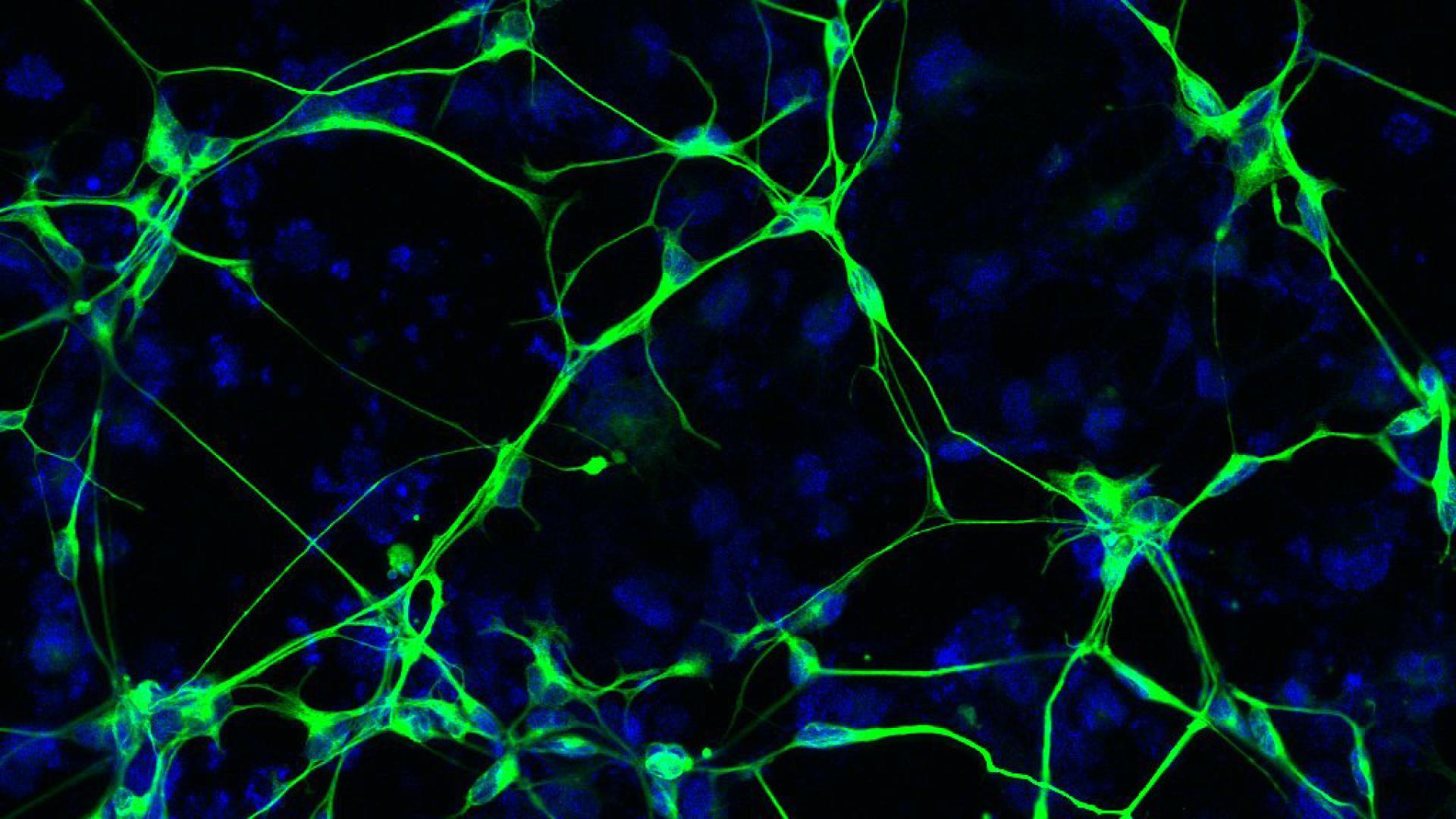Deteriorating Neurons Are Source of Human Brain Inflammation in Alzheimer’s Disease, BrightFocus Researchers Find
Discovery could pave the way for therapeutics to prevent or treat Alzheimer’s disease.
Discovery could pave the way for therapeutics to prevent or treat Alzheimer’s disease.

More than 95 percent of Alzheimer’s disease cases have no known origin, according to the Salk Institute for Biological Studies. Now, a new study funded by Alzheimer’s Disease Research, a BrightFocus Foundation program, points to one possible source of brain inflammation, a hallmark of Alzheimer’s disease: deteriorating neurons. This could pave the way for new treatments to prevent or treat Alzheimer’s disease.
Scientists are exploring how a therapy administered to patient-derived neurons in the lab can eliminate deteriorating cells, leading to positive outcomes for the remaining healthy cells, the Salk Institute reported.
Alzheimer’s Disease Research grantees Jerome Mertens, PhD, and Larissa Traxler, PhD, coauthored the findings, which were published in Cell Stem Cell on Dec. 1, 2022.
The brain has close to a billion neurons, which transmit information that records and connects our thoughts, behaviors, feelings, and actions. Unlike other cells, including skin, muscle, and bone cells, neurons do not regenerate. Neurodegenerative diseases like Alzheimer’s occur when neurons in the brain or peripheral nervous system lose function over time and ultimately die.
The Institute wrote:
“Scientists from the Salk Institute have found that neurons from people with Alzheimer’s disease show deterioration and undergo a late-life stress process called senescence. These neurons have a loss of functional activity, impaired metabolism, and increased brain inflammation. The researchers also discovered that targeting the deteriorating neurons with therapeutics could be an effective strategy for preventing or treating Alzheimer’s disease.”
“Our study clearly demonstrates that these non-replicating cells are going through the deterioration process of senescence and that it is directly related to neuroinflammation and Alzheimer’s disease,” says co-corresponding author and Professor Rusty Gage, president of the Salk Institute and holder of the Vi and John Adler Chair for Research on Age-Related Neurodegenerative Disease.
BrightFocus Foundation is a premier global nonprofit funder of research to defeat Alzheimer’s, macular degeneration, and glaucoma. Since its inception more than 50 years ago, BrightFocus and its flagship research programs—Alzheimer’s Disease Research, Macular Degeneration Research, and National Glaucoma Research—has awarded more than $300 million in research grants to scientists around the world, catalyzing thousands of scientific breakthroughs, life-enhancing treatments, and diagnostic tools. We also share the latest research findings, expert information, and resources to empower the millions impacted by these devastating diseases. Learn more at brightfocus.org.
Disclaimer: The information provided here is a public service of BrightFocus Foundation and is not intended to constitute medical advice. Please consult your physician for personalized medical, dietary, and/or exercise advice. Any medications or supplements should only be taken under medical supervision. BrightFocus Foundation does not endorse any medical products or therapies.
Every Donation is a Step Forward in the Fight Against Alzheimer’s
Your donation powers cutting-edge research and helps scientists explore new treatments. Help bring us closer to a cure and provide valuable information to the public.
Donate Today